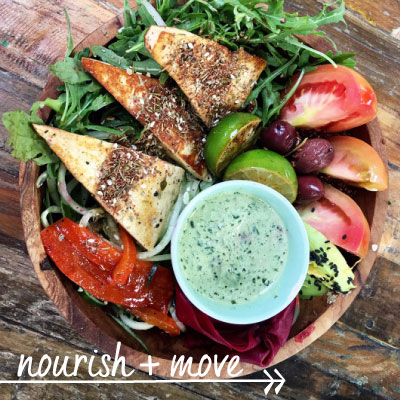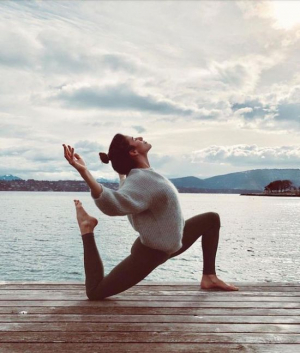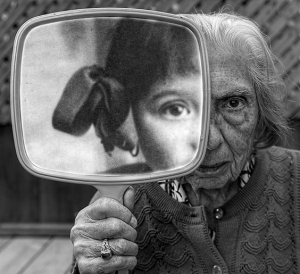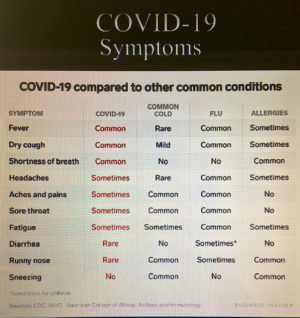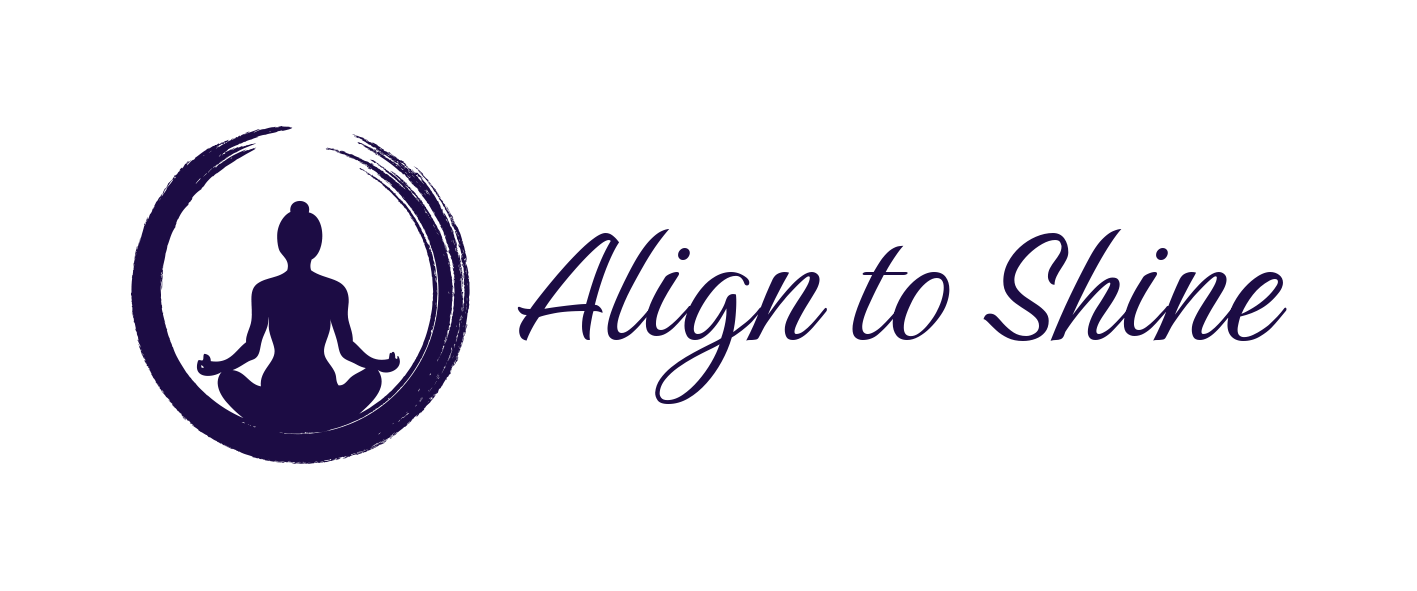
Displaying items by tag: social connection
Ayurvedic Approach to Dealing with Depression
By Kayse Budd, M.D., Holistic Psychiatrist, Astrologer, Poet, and Educator
May 2020
An Ayurvedic approach to depression takes into account mental, spiritual, and physical aspects of health and well-being. Within Ayurveda, there are three subsets of depression corresponding to the three doshas.
Depression is one of the most common mental illnesses worldwide, affecting approximately 300 million people (4.4 percent of the world’s population) and 17.3 million US adults (approximately 1 in 12). Women are nearly twice as likely as men (8.7 percent vs. 5.3 percent) to suffer from depression, with adolescence, postpartum, and perimenopause being especially risky times. Depression has a significant economic impact. It is the leading cause of disability worldwide. It is also one of the most common reasons people seek out integrative or complementary therapies and providers.
Psychological Perspectives
Healing depression is something that requires time, focus, and effort on multiple levels. Here are five key psychological steps that can provide a useful foundation for the endeavor.
- Choose to accept the self exactly as it is—with the parents, the body, and the circumstances present. Trust that things are as they are for a reason, even if you do not understand it. Few people live up to the exact ideal they have for themselves. To be happy, you have to choose to care for (and eventually love) yourself as you are, including your perceived flaws and difficulties.
- Make constant inquiry into your mind and heart. Be mindful of your emotions throughout the day. This could mean catching a stream of negative self-talk and substituting more supportive affirmations (classic cognitive therapy and pratipaksha-bhavana in ancient yogic philosophy). It could also mean changing what you are doing (behavioral therapy).
- Honor your yes and no. A factor in many cases of depression involves not honoring your truth. The question, “What do I want (right now)?” is important. Take action to follow things that feel aligned with your authentic yes. Say no to things that feel uncomfortable in your body or heart.
- Take responsibility for your choices. If you feel your goals and wishes (your “yesses”) are being rejected—by life, yourself, partner, or family—you often end up unhappy. This is a complex issue, however. Dreams and wishes are not always straightforward. “Yes” is not always crystal clear. It is important to acknowledge this. Otherwise, you can mistakenly blame other people for your choices and your happiness. Remember: You need challenges to develop specific strengths, which are the fuel for spiritual growth. In turn, you can help others in similar situations.
- See the self holistically. All seemingly negative traits have positive aspects. The core qualities of people’s most “negative” traits are often tied to their greatest strengths. As a psychiatrist who is also an astrologer, I have found several patterns of susceptibility to depression in people’s astrological charts. Saturn (order, restriction, heaviness) is usually involved, as is Pluto (intensity, transformation, obsession). A prominent Saturn may make someone depression-prone, but it also makes them conscientious, reliable, and capable—very useful traits. A prominent Pluto can make a person depressed but also determined, resilient, and charismatic.
Ayurvedic Perspectives
Viewed through an Ayurvedic lens, depression is usually thought of as a Kapha imbalance—heaviness, sadness, and general stagnation. Apathy, low energy, poor mood, and reduced movement are part of the official criteria psychiatrists use to diagnose depression. These symptoms are all Kapha problems, which suggests that the Kapha element is indeed out of balance in most cases of clinical depression.
From a more comprehensive Ayurvedic standpoint, there are three subtly different types of depression corresponding to the three doshas. These unique types of depression may preferentially affect people of that same primary dosha. They can also affect people of a different primary dosha who have the affected dosha(s) out of balance.
Kapha Depression
Associated with lethargy, increased sleep, poor motivation, despondency, and ama(toxicity), lies Kapha depression. It is the most common and longest-lasting type--due to the inherently slow-moving nature of Kapha. The treatment approach varies but includes the general principles of increasing movement, reducing toxicity, and enhancing ojas(vitality). Some science-backed recommendations are:
- Thirty minutes of yoga daily (especially Sun Salutations)
- Thirty minutes of outdoor exercise daily (start gentle and increase to moderate intensity). Spend time in nature at least once a week.
- Increase fresh vegetables in your diet. Reduce processed foods and sugars (including alcohol, which is a depressant).
- Eat warm, spicy meals. Reduce cold food and smoothies. Add pungent, warming herbs such as cayenne and cinnamon to meals.
- Consider fresh-squeezed veggie juice to help the body detoxify. A program of physician-supervised cleansing (called panchakarma in Ayurveda) could be helpful.
- Consume ginger tea morning and night. (Cut and boil a 2–3-inch piece of organic ginger. Steep 20 minutes.) Also helpful for Vata depression.
- Take 350–400 mg of the herb ashwagandha morning and night. Ashwagandhaenhances thyroid function, and supplementing the thyroid is a standard adjunct treatment for depression within Western psychiatry. Caution for Pitta dosha or Pitta-type depression (see below), as increased thyroid activity could actually worsen agitation in that population. Ashwagandha is helpful for Vata, however.
- Consume 1 teaspoon dulse, nori, wakame, or other seaweed three times per week. Seaweeds can cause a subtle increase in energy, metabolism, and body temperature with a possible slight reduction in depression.
- Take 20–30 mg/day of the spice saffron.
- Use caution and discuss with your physician if already on an SSRI or other pharmaceutical.
- Perform a daily self-massage (abhyanga) with a warming oil, such as sesame. Massageis known to reduce cortisol levels and increase serotonin/dopamine, making it a useful practice for depression.
- Consider 120–250 mg/morning of the herb Rhodiola.
- Use caution/discuss with your physician if on SSRIs.
- Consider taking 500–2,000 mg/day of cardamom. Cardamom reduces inflammation, congestion, and mucus throughout the body (possibly also helping irritable bowel or inflammatory bowel disorder). It has an indirect effect on depression.
- Avoid binge-watching, excessive internet use, and similar sedentary activities, as these promote Kapha accumulation.
- Clean the house, make the bed, bathe, and get dressed daily. Set a commitment for social interaction one to three times/week. Taking action to promote vitality is essential.
Pitta Depression
Like Pitta imbalance, Pitta depression is a more agitated state. It is highlighted by frustration, anger, irritability, and impulsivity. There is a higher risk of suicide with this type of depression due to the impulsivity and agitation. In traditional psychiatry, this might be thought of as a “mixed depression” (depression blended with manic or bipolar symptoms) or an “agitated depression.” This condition may be more common in a person who has been diagnosed with bipolar disorder or has some tendencies along the bipolar spectrum.
Pitta depression can be improved by general principles of cooling and soothing. Research-based remedies include the following:
- Twenty to thirty minutes of slow, restorative yoga daily. Avoid hot yoga and excessively vigorous exercise.
- Meditate for 20 minutes daily, possibly under a tree in nature.
- Walk by the ocean, a lake, or a stream for at least 30–60 minutes a day. Water is cooling for Pitta.
- Increase alkalinity in the body through green drinks, salads, and fresh vegetables.
- Increase cooling foods, such as fresh fruit and smoothies.
- Avoid spicy food, which imbalances Pitta.
- Avoid alcohol during healing (and be mindful afterward). Alcohol is acidic, which aggravates Pitta.
- Aloe vera juice can be helpful to Pitta. One cup or more per day is cooling and anti-inflammatory. Since inflammation is a factor in many cases of depression, there is a probable indirect effect on depression.
- Consider taking 400–800 mg/day of the herb shatavari (asparagus racemosus). It is a cooling herb with a balancing effect for Pitta. In Ayurveda, balancing the doshas impacts the mood.
- Bacopa is another Pitta-balancing herb with promise regarding depression. This herb is also being studied for schizophrenia, ADHD/focus, memory, epilepsy, and anxiety. Start with 350–400 mg/day to start; work up to 800 mg/day, if well tolerated.
- Ginkgo is a cooling herb best known for its neuroprotective benefits; aim for 120–240 mg/day. It seems these do extend (at least partially) to mood.
- Do not take if you are on a blood thinner, including aspirin, or if you have been diagnosed with a bleeding disorder.
- Begin daily consumption of cilantro (a handful/day) and coriander seed (1 teaspoon/meal). Both are cooling, and cilantro is detoxifying, especially for heavy metals. Five to 10 chlorella (edible algae) tablets optimize the effect.
- Consider an organized cleansing program, including liver support herbs.
- Sweet tastes and fragrances such as rose and other flowers balance Pitta. (Lavender and rose aromatherapy improved depression and anxiety in a group of post-partum women vs. control.) Rose essential oil diffused daily or used on the skin with a carrier oil may help balance Pitta (and Vata).
- The Ayurvedic herb arjuna can be helpful to balance sadhaka Pitta, the aspect of Pittathat governs emotions. Arjuna has a long history of use for various dysfunctions of the heart muscle (heart failure, palpitations, hypertension), but it also seems to have an emotionally soothing aspect. Take 500–1,000mg/day.
Vata Depression
Characterized by worry, restlessness, insomnia, and “ungroundedness,” a person with Vatadepression often will have an overload of the stress hormone cortisol. They generally have pushed themselves (or felt pushed) beyond their capabilities and become overwhelmed. This is a bit like the classic “nervous breakdown,” which is not an official medical diagnosis. In psychiatry, Vata depression is usually thought of as a combined anxiety-depressive disorder. There is a strong ruminative component to this state—an inability to shut off the mind.
Key principles for healing Vata depression are grounding, warming, and calming. A few specific recommendations for Vata-type depression are:
- Aim for 15–30 minutes yoga daily, followed by 15–30 minutes of seated meditation. Routine and discipline are very helpful for Vata.
- Loneliness is common in Vata depression, so commit to at least one social activity/week.
- Connection to nature is crucial due to the inherently ungrounded qualities of Vata. Spending 30 minutes or more outside every day—sitting on the ground, touching a tree, or gardening—can be highly therapeutic.
- Increase consumption of warm, nourishing whole foods such as soup, kitchari, and baked vegetables. Avoid dry, processed food (chips, crackers) and reduce cold foods (salads, smoothies).
- Drink 2 tablespoons of loose tulsi (holy basil) tea three or four times a day. Alternatively, take 800–-1,000 mg/day in capsule form.
- The Western herbal treatment St. John’s Wort can be helpful for this kind of depression, as well as the Kapha type. In terms of qualities, St. John’s Wort is bitter and pungent. Because bitterness can aggravate Vata, start with a small dose (300 mg/day). With Kapha symptoms, the dose may need to be higher: 300 mg two or three times per day. This herb stabilizes prana Vata, the aspect of Vata that governs the brain and neurotransmitters.
- Do not take this supplement with birth control pills. It can render oral contraception ineffective because it speeds up hormone processing in the liver.
- Do not take if on an SSRI, unless under the guidance of an experienced physician.
- Passionflower is a wonderful supplement, especially in conjunction with St. John’s Wort. Passionflower is calming to the nervous system, which is why it is included in the Vata section. It has ever-increasing evidence supporting its use for anxiety. Paired with St. John’s Wort, the effect is synergistic: greater benefit for both anxiety and depression than either used alone. By pure Ayurvedic qualities, this herb could also help Pittadepression; aim for a dosage between 400–800 mg/day.
- Chamomile is worth considering for Vata-type depression. High doses may be a bit drying, but at moderate doses, the soothing effect predominates. It is evidence-based for anxiety, and new studies suggest it may have anti-depressant effects as well, at doses of 250–500 mg/day.
- The Ayurvedic herb jatamansi has a long history of use as a Vata-balancer with doses ranging from 450-1,000 mg/day. It is commonly used for anxiety and sleep. It may have some mild anti-depressant benefits as well.
- Ashwagandha was discussed in the Kapha section, but it is also an effective balancer of Vata. Thus, it deserves to be part of the Ayurvedic approach to either Vata or Kaphadepression between 350–800 mg/day.
- Gotu kola can be beneficial to all of the doshas, but since it perhaps has the strongest evidence for use with anxiety, it is included here. There are no studies (yet) looking at gotu kola for depression in humans, but there are several rodent studies suggesting benefit; consider a dose of 700–1,400 mg/day.
- Daily probiotics are beneficial for all doshas, especially Vata and Kapha since they have naturally weaker digestion compared to Pitta. The data is resoundingly favorable and becomes even more so if specific strains of bacteria are ingested. B. longum, L. rhamnosus, L. reuteri, and L. helveticus are several that have been found especially helpful.
- Turmeric has received much publicity due to its extensive scientifically documented success with depression at doses of 1,500–2,000 mg/day. Take with black pepper. Prolonged high doses may be aggravating for Vata and Pitta, but temporary use is helpful for all doshas.
- Practice daily self-massage with a warming oil (sesame or almond).
- Encourage restful sleep with bedtime around 10 p.m. Use herbs to support this, if needed. Ashwagandha, passionflower, tulsi, and jatamansi can help.
Spiritual Perspectives
Depression is an opportunity—a chance to face your darkest thoughts and feelings with understanding and openness. It is a chance to nurture and heal yourself. Spiritually, transforming depression involves facing one’s own depths and coming to terms with choices, disappointments, fears, traumas, and more. Each case of depression is unique, but the common answer to all of them is your own love. If you are willing to open your heart to your own pain and make compassionate space for it, you are on your way to healing.
If you suffer from depression, take the wildest self-affirming action possible and fully commit to being here—on the planet and in your body. Wishing to leave is distracting and essentially delays healing. Have compassion for your soul for choosing a challenging life. Honor your soul’s wisdom by vowing to walk your unique path, even if it’s hard—even with depression.
Depression is your teacher. Trying to understand it will teach you about yourself and the world. Cultivating happiness is a practice. Every day requires maintenance. Try not to doubt your journey. Integrate your prior choices and values into your current sense of self. This will help you feel cohesive and strong. Feeling empowered now makes it easier to create a future that includes a heart at peace. The road is inward and may be long, but a heart at peace in a balanced body will surely find its way.
*Editor’s Note: The information in this article is intended for your educational use only; it is not a substitute for professional medical advice, diagnosis, or treatment. Always seek the advice of your physician or other qualified health providers with any questions you may have regarding a medical condition and before undertaking any diet, supplement, fitness, or other health programs.
The Importance of Socialisation to Your Well-Being
Why Loneliness Is A Public Health Issue
When we think about health, we usually think about diet and exercise. We think about the things we are doing for our physical body to promote wellness. But what about the things we can’t see?
Relationships are a big one. And we now know that loneliness and social isolation are as dangerous for our health as smoking 15 cigarettes a day! That’s an incredible comparison; one that hopefully puts into perspective how vital healthy relationships and human connection are to our wellbeing and longevity.
Today on The Doctor’s Farmacy, I talk with Dr. Vivek Murthy about nurturing greater connection and what it means for our health.
Dr. Murthy served as the 19th Surgeon General of the United States between 2014-2017. As the Vice Admiral of the US Public Health Service Commissioned Corps, he commanded a uniformed service of 6,600 public health officers globally. During his tenure, Dr. Murthy launched the TurnTheTide campaign, catalyzing a movement among health professionals to address the nation’s opioid crisis. He also issued the first Surgeon General’s Report on Alcohol, Drugs, and Health, calling for expanded access to prevention and treatment and for recognizing addiction as a chronic illness, not a character flaw.
In 2017, Dr. Murthy focused his attention on chronic stress and loneliness as prevalent problems that have profound implications for health, productivity, and happiness. His book Together: The Healing Power of Human Connection in a Sometimes Lonely World was just published on April 28th.
Some of us might wonder how we break out of a rut of loneliness—as busy adults this can sometimes feel especially difficult. Dr. Murthy walks us through some really simple ways to get more connected. Service is one way, which actually stimulates the reward center of the brain and promotes feel-good chemicals. That means devoting some time to helping others in one way or another is actually beneficial to our own personal wellness goals.
Another step we can take is committing just ten to fifteen minutes a day to talking to someone we love, which is a powerful way to keep ourselves happy and connected during this time of coronavirus quarantine. Pick up the phone, schedule a video call, or sit down with someone in your family and have a real conversation (without the distraction of screens) about what’s going on with you. Chances are if you open up, they will too, and you’ll both be healthier for it.
Instead of thinking of just the right inputs for health, I invite you to think about what you can give back and how you can reach out to others.
I hope you’ll tune in to this episode of The Doctor’s Farmacy to think more deeply about your relationships and how to prevent loneliness, even if you’re currently alone at home.
Wishing you health and happiness,
Mark Hyman, MD
We Are Wired To Survive!
It is our innate nature to want to survive, alleviate the stress & thrive. We need to honor our bodies through our everyday, healthy choices, and find some deeper sense of peace.
We need to find acceptance of our current situation rather than resist it.
Over the last several days I have been feeling rather distracted and scattered with my hyperactive mind. I have tried to collate information from my own experiences, and so many others, to share, and to help empower you to take an active role in your wellness. This way you are able to take some practical steps to give yourself a greater sense of ease.
This list of symptoms is taken from Gregg Braden’s You Tube video Truth and Fiction Coronavirus, which I would highly recommend, to give you some clarity around the global pandemic and what actions to take.
I would also like to express thanks to all those who have imparted science, ancient wisdom and generous support and love, of whom there are many.
“The natural healing force within each of us is the greatest force in getting well.” Hippocrates
Some tips to help you support & maintain your optimal wellness
Set your intention to gain & maintain your optimal wellness.
Common Sense
. wash and dry your hands after touching surfaces
. cover for a cough or sneeze
. if you are sick stay at home
. social distancing NOT social isolation – call people especially the elderly
Your Natural Defenses
Your body knows what to do! When we support our body for what it is designed to do. Honor your body.
. strengthen your immune system
. relieve stress
. good sleep habits
. movement and exercise
. nutrition & supplements
. communication, collaboration & community
Tools – What can I do to support & love my body?
Breathe work - breathe is key & free! A negative thought or belief will have an effect on your physical body. With this awareness try the following: (there are many more examples of breathe work):
To help calm the sympathetic nervous system place your hands on your heart and take 3 deep breathes:
Count to 4 while you inhale
Hold your breathe while counting to 7
Count to 8 as you slowly exhale, helping to release any fear & anxiety, or energy that’s not serving you.
Repeat at least 2 more rounds, tuning into your body, and carry on for as long as you feel you need to.
Movement, exercise, dance, sing, play – do what ever brings you joy! Crank up the music.
Nature Heals – get into the outdoors as often as you are able.
Nutrition – stay hydrated & eat as many wholefoods as you can – local, seasonal, unprocessed, living, nutrient dense, high fibre, organic/spray free/GM free when possible. Stimulate your sense of smell & taste, & support your well-being with herbs and spices. Plant a garden, even if you only have room for a few pots.
Ask your health practitioner regarding health supplements to support your optimal wellness & boost your immunity ie vitamin C, Zinc, anti-viral preparations.
“If there is only one thing you can do to have a healthier body is to have a healthier gut. There is nothing more powerful to protect you than to have a healthy micro biome, or there is nothing more powerful than to have a healthier micro biome, to have a healthier brain function.” Dr Mark Hyman
“We are the health of all our cells. “ Dr Libby Weaver
Surrender & self-love practices like yoga, meditation, try to be patient and present (being mindful), express gratitude for what you do have. Listen to your intuition, your innate self, where the true wisdom lies. Emotional Freedom Technique – tapping on meridian points on the body, derived from acupuncture, can release energy blockages that can cause negative emotions. There are lots of great sites and videos offering you various yoga, breathing, tapping & meditation practices.
Social connection – have clear boundaries, beware of the conversations you have, choose carefully who you spend your free time with, & avoid too much media. Show compassion and kindness to yourself, family, friends and the wider community. “Community builds Immunity” Dr LeRoy. Connect with people and share.
Be gentle on yourself – it’s OK to feel anxious, angry, afraid or unsafe. Allow yourself to express your feelings, and then practice some self-love. Try to minimize or remove triggers that stress you. Take control of your mind, adjust your thoughts & perspective of your experiences – what’s the benefits in this I’m not seeing? Ensure you have daily expressions of gratitude.
Create a bedtime ritual – try to clear your mind prior to going to bed ie turn off IT by 7pm – phone, computer, TV. Try journaling, reading, a bath in Epsom salts & essential oils, a foot soak in a bucket if you don’t have a bath, self massage or offer to give a massage, listen to your circadian rhythm, eat at regular times, & rise with the sun, & sleep as soon after sunset as your routine allows. These sorts of practices will help you slip into the parasympathetic nervous system with more ease, enabling your body to rest, digest, reproduce & rejuvenate.
Tweak you personal hygiene habits including cleaning – door handles, key boards, phones, steering wheels, kitchen benches, bathrooms, etc. Wash hand towels, tea towels, towels, clothes, etc, regularly. Use antiseptic solutions – you can make your own with essential oils – recipes on the internet.
More words from Gregg Braden
What can we expect? It depends on our response – individually & collectively. We are now beyond the containment window.
Mitigation phase – defined: The action of reducing the severity, seriousness, or painfulness of something.
When we are self-isolating ourselves we are giving a gift to ourselves and others, to reflect, find peace, heal and express gratitude.
A New Normal:
. shifts in society
. shifts in economies (sharing of vital resources)
. shifts in lifestyle – more localized.
An awakening of Consciousness – supported by so many beautiful beings.
This is an opportunity to love more, serve, and support.
Keep shining your own unique and bright light.
In health & happiness Leonie Main
Balancing Act
The Freedom to live a Healthy Life requires commitment, planning, action & resilience.
Periodically re-evaluate your growth in the following areas to find your Optimal Wellness.
- Eat nutritious, seasonal wholefoods, mostly organic or spray free
- Allow yourself adequate rest & quality sleep
- Cultivate a peaceful but alert mind, open to love, joy & growth
- Social connection with family, friends & colleagues
- Regular exercise & a movement rich life including time out in nature
- Minimise exposure to environmental toxins
Contact Leonie Main
m: +64 (0) 274 96 96 33
19B Golf Road, Mount Maunganui 3116, New Zealand
Facebook: Gypset Life
